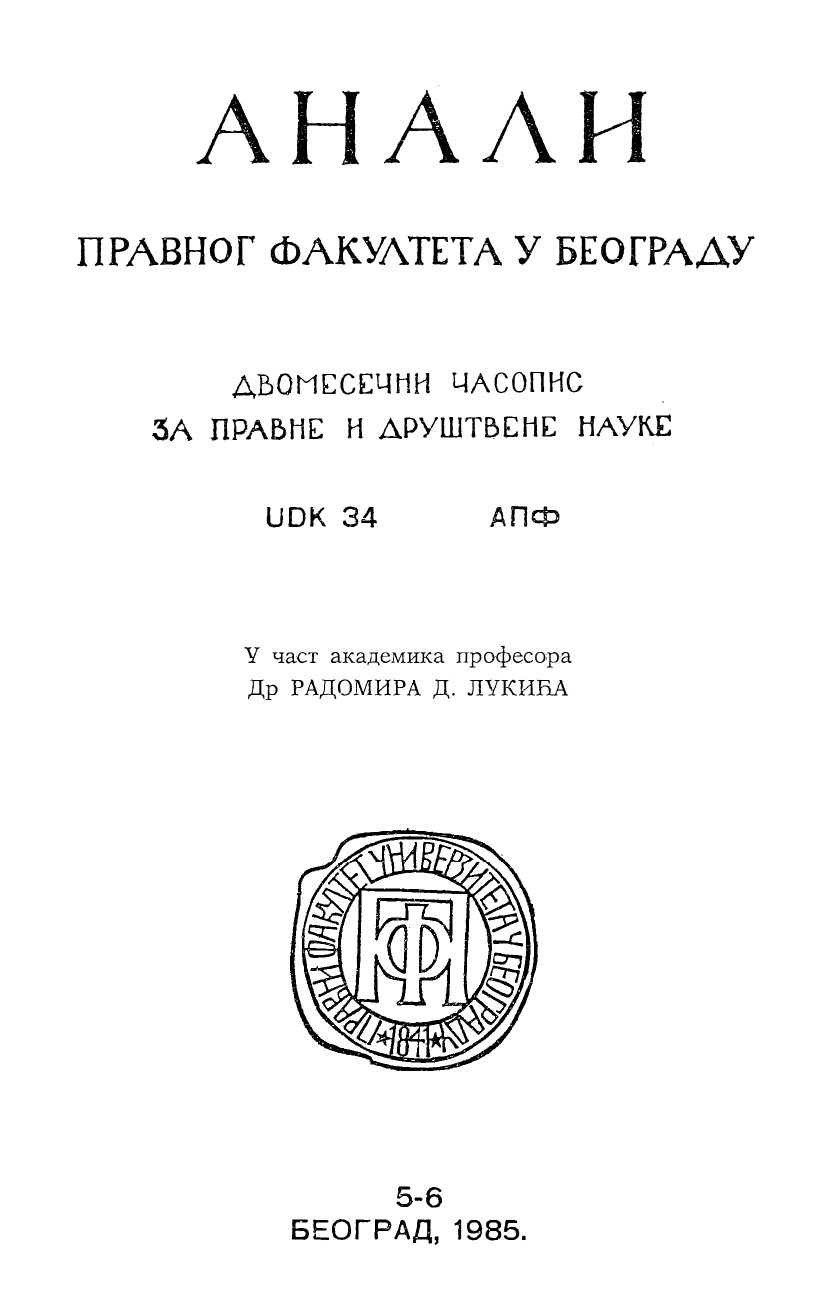О ТЕОРИЈИ НАРОДНЕ СУВЕРЕНОСТИ
THE THEORY OF PEOPLE’S SOVEREIGNTY
Author(s): Gordana VukadinovićSubject(s): Law, Constitution, Jurisprudence
Published by: Правни факултет Универзитета у Београду
Summary/Abstract: According to Rousseau the sovereignty is »the performance of the general will«, while the sovereign power is entirely identical with the legislation. The protagonist of sovereignty is the people, namely the totality of individuals viewed together, organized into a collective and managed by the general will. Sovereign power is »unlimited, sacred and inviolable«, so that accordingly it is not possible to transfer the sovereignty from the people to another subject. Every representation in performing the sovereign power is equal to the negation of freedom. According to Rousseau’s conception of state, the sovereignty, the general will and the legislative power are closely connected and are but different sides of one and the same essence. The people executes its sovereign power as a legislator, while the law is a normative expression of the general will. In the process of enacting the law there is no need for unanimity, since the law should express the general will and such a will need not be identical with the will of all. The executory power executes the laws and it enacts individual acts. It is entirely subordinated to the legislative power which is the only one able to express the general will. In his political theory Rousseau favours the electoral aristocracy (Rousseau gives specific significance to the term »aristocracy«) as a from of state.
Journal: Анали Правног факултета у Београду
- Issue Year: 33/1985
- Issue No: 5-6
- Page Range: 558-565
- Page Count: 8
- Language: Serbian

